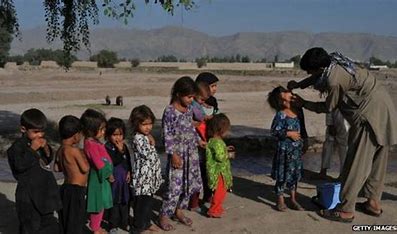
The National Digital Health Mission (NDHM) is a big leap towards upgrading the healthcare infrastructure in the country. NDHM was announced on August 15, 2020 and envisages the creation of a National Digital Health Ecosystem with six key features: Health ID, Digi Doctor, Health Facility Registry, Personal Health Records, Telemedicine, and e-Pharmacy. Under NDHM, ‘Every Indian citizen will get a Health ID which will be a repository of all health-relatedinformation, of a person, such as medical tests, previous prescriptions, diagnosis,treatments, all historical health records’ and notes that ‘private stakeholders will have anequal opportunity to integrate with these building blocks and create their own products forthe market.’ On August 26, 2020, the government released a Health Data Management Policy (HDMP) to govern the National Digital Health Ecosystem, which is being governed by the National Health Authority. The Ayushman Bharat and the National Health Authority also announced the launch of the NDHM sandbox initiative, which invites healthcare professionals, software providers, start-ups to test and develop products to ready for market use.
A TURNING POINT
This policy will apply to everyone in the National Digital Health Mission ecosystem, such as people who have been issued Health IDs, healthcare professionals, governing bodies such as Health Ministry and National Heath Authority, any healthcare provider that collects health data, payers, pharma stakeholders, and anybody who collects or processes personal or sensitive personal data. If NDHM turns out to be successful it can be a turning point for the health-tech sector. Healthcare start-ups shall have the added advantage of information being carried forward in the health ID, including all tests done, existing diseases, medicines prescribed, etc. The move to use technology to streamline processes such as medical record-keeping, sharing of healthcare data, appointments and similar healthcare processes shall benefit the health-tech start-ups.
THE EFFECT ON START-UPS
Cutting down the cost of healthcare is one of the major target of NDHM. So far, most small health-tech start-ups that collect any kind of health data are forced to develop their electronic medical record (EMR) systems. Now, they can simply integrate their technology into an already existing EMR system, which shall make the process much more cost-efficient. With this facility, we can hope that technology-based companies will have a larger bandwidth to focus on Research & Development (R&D) to innovate new products instead of allocating funds to collect and assimilate data. Similarly, in the pharmaceutical space, the company shall be able to develop region-specific products based on this data which can become a huge differentiator. For example, cholesterol levels of patients across the country are different and depending on the diet that they follow, a small change in the percentage of dosage can have a significant impact on patient’s health.
The present facilities available under NDHM are heavily health-tech centric. However, for the whole healthcare system to thrive, it is important to make this policy more inclusive. It is understandable that it is a pilot phase but going forward this policy shall be useful only if it extends its arms to all other ancillary sectors such as insurance tech and biotechnology. For the same reasons and owing to the existing experiences in the life sciences ecosystem participation of biotechnology incubation centres in stakeholder meetings maybe useful from a policy formation perspective.
FROM THE EYES OF AN INVESTOR
To achieve this goal, the government needs to invest in the development and innovation of R&D, health-tech, biotechnology, Telemedicine, e-Pharmacy, etc. NDHM helps in streamlining these sectors. NDHM has triggered the long-laid plans of investing integrated technology, artificial intelligence and Internet-of-Things (IoT) based devices onto a digital platform. Generally, it is seen that foreign investors want to invest in a sector with clear regulation because it brings stability to the sector and we hope that NDHM has the potential to bring the required certainty in the sector to attract investment. For example, in telemedicine and e-pharmacy, the investment may stagnate if there are no proper defined rules, regulations or standards. Data collection is one of the heads which is capital intensive. A centralized EMR system under NDHM shall help the companies to focus on development and innovation. This in turn should bring a culture of R&D in the sector.
A BROADER GOAL
Hon’ble Prime Minister Shri Narendra Modi highlighted the bold steps taken by India to achieve the Universal Health Coverage at the United Nations General Assembly meeting on September 23, 2019. NDHM is the first step towards the goal of Universal Health Coverage.
The NDHM’s vision is to create a national digital health ecosystem that supports universal health coverage in an efficient, accessible, inclusive, affordable, timely and safe manner, that provides a wide range of data, information and infrastructure services, duly leveraging open, interoperable, standards-based digital systems, and ensures the security, confidentiality and privacy of health-related personal information. NDHM is focused to achieve the larger goal of universal health coverage under the Ayushman Bharat Programme.
Dr. Jitendra Kumar, Managing Director, Bangalore , Bioinnovation Centre and Mr. Aashrit Varma, Consultant (Public Policy), Bridge Policy Think Tank.















